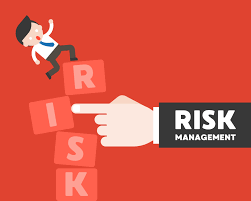
Balanced Approach to Risk Management
A risk is part of everyday life and it almost affects everyone in some form or the other. A risk is taken every day in order to sustain a better, healthy future. Therefore risk cannot be completely eliminated in any aspect of our society and so accepting that the possibility of even serious or life threatening injuries cannot be eliminated, however, it should be legally and lawfully managed. Risk should be acknowledged and controlled at a manageable level to benefit the potential opportunities we get in return. A balanced approach to managing risk is essential to structure our society. The concept of ‘risk/benefit’ assessment should be a guide to achieve satisfaction.
Playtime is essential and vital part of a child’s life. Playtime directly affects a child’s well-being and development. The Health & Safety Executive (UK) acknowledges that “No child will learn if they are wrapped in cotton wool”
(http://www.hse.gov.uk/entertainment/childrens-play-july-2012.pdf)
Through playtime children develop different skills such as self-confidence, team building, and social skills in school.
One of the key benefits of risk is; children of various age groups learn about risk themselves, mostly through outdoor play activities. A balanced approach to managing risk for providing children’s play opportunities and activities as well as the benefits they gain out of it should be carefully measured. Recognising the introduction of risk may form part of play opportunities. This enhances their experience to take responsibility for their own safety and well-being as they grow up.
The National Travel Survey 2014 has confirmed that the most common mode of transport to school by children between the ages of 5-10 is by walking or car. 88% of children between the ages of 7-10 were accompanied by an adult and more than half of them agreed that road safety was their biggest concern; among other concerns. Whilst, a risk is part of life but accidents do not have to be; in most cases accidents can be easily avoided. A 2010 study by, The English Outdoor Council admits that “On a typical school visit, the children who take part are at no greater risk of death than their schoolmates who have stayed behind”.
http://www.englishoutdoorcouncil.org/wp-content/uploads/Nothing-Ventured.pdf
In order to keep children safe, children must be taught systematically; pedestrian skills; road crossing, safe cycling and scooting from a very early age and should be linked predominantly between the ages of 7-10. Most primary schools have directly linked these activities to their curriculum. These skills will play a vital role in managing risk for the yr 6 Residential Visits, Outdoor School Activities, The benefits gained from these activities should be balanced against the hazard or risk it may have.
In my school, we have an Adventure playground which is used by all pupils. However, KS1 is only allowed to use the Adventure playground occasionally as Marble treats for 15mins. KS2 uses the Adventure playground on rota basis every play time. The maximum children allowed to access the Adventure playground is approximately 30. Pupils are not allowed to access the playground on wet days, indoor play activities are organised. When pupils use the Adventure playground, the class teacher personally monitors the play area. A comprehensive site survey is carried out every term to manage risk. All children learn to use the adventure facilities in a different way. They all want to enjoy and play and reach specific targets. KS1 use the facilities and try out each activity at their own pace, whilst KS2 especially the 10/11 year old are stronger and reach their specific targets and goals at a faster pace. The experience they gain in the Adventure playground, without any adults interfering gain them resilience and abilities as they learn to manage their own risk. Children with a specific disability would be monitored by a supervisor on a 1:1.
Another activity in our school is Climb the Wall available only to yr 5/6. The activity itself is challenging and it builds pupils confidence; benefitting them with climbing movement, agility, balance and coordination, awareness of body’s centre gravity. A risk is assessed and managed by appropriate use of helmets, footwear, clothing, long hairs tied back, no jewellery, and pockets all emptied. The activity is strictly supervised by 1:1 ratio; 3 children allowed at a single time. Children with a specific disability would not be allowed to participate in this activity.
One of the activity our school organises is a Residential trip only to year 6. Children experience various benefits, some of them are building personal confidence, team building activity, and developing social skills and exploring their strengths and weakness. The objectives and the outcome of this activity are well managed and measured in the trip. The risk is managed by the ratio of students to the teacher. This activity is not available to any other pupils in the school as the objectives and benefits are slim.
Our school is aware of the health and safety risk to children. The school has tailored an exclusive Road Safety Education into their curriculum. Year 5 children are offered cycle training. This programme is facilitated by the East Riding Council and a group of 4/5 children are taken outside the school with their cycles and helmets and trained to use a cycle safely. The risk is assessed and managed by the school as well as the ERC. Children who pass this training are allowed to cycle to school independently. A pedestrian skill programme is arranged for yr 4, personally organised by the ERC and ‘Scoot the Route’ is offered to year 3. Children in Yr 6 experience a Bus Aware programme which will benefit them before they go to the secondary school.
Reference
NA. (2012). CHILDREN’S PLAY AND LEISURE – PROMOTING A BALANCED APPROACH . Available: http:// http://www.hse.gov.uk/entertainment/childrens-play-july-2012.pdf . Last accessed 12/02/14.
Jill T. (NA). Nothing Ventured. Available:http://www.englishoutdoorcouncil.org/wp-content/uploads/Nothing-Ventured.pdf Last accessed 14/2/17.









